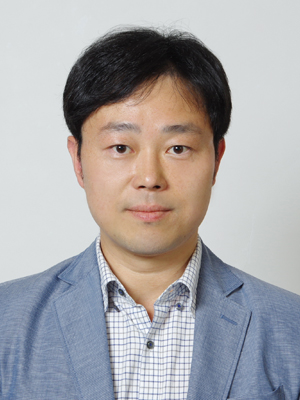By Roh Dong-hoon, Director of Carnation Silver Care Hospital
Opening the door and stepping into his room, all sorts of nasty smells hit me. The stench of a widower who hasn't showered for a long time, the odor from the rotten food on the floor, and the toilet stink were all mixed. I could hide my face with a mask, but I couldn't help but frown.

His birth year was 1964, so he was a 59-year-old male born in the year of the dragon. Soju bottles, cigarette butts, portable burners, and burnt newspapers were on the floor. Bugs were also on the floor and in the air. The man asked me to sit down, but the floor was sticky. He was like a homeless in the Seoul Railway Station.
According to Rev. Kim Yong-ho of Nanuri Food Bank, the man had been sleepless due to pain for years and had fallen into alcoholism. The pastor told the man that now that a doctor had come, he could tell what was bothering him.
However, the man complained, asking the pastor why he accompanied a doctor instead of just bringing some food. The man was full of dissatisfaction. In such moments, one should remain quiet and listen. After listening to the man, I promised to control his pain with medication and prescribe sleeping pills if he abstains from drinking. I hope he keeps his promise.
Rev. Jeong Young-il of Wooribapjip (Our Chophouse) in Uijeongbu, Gyeonggi Province, has a son born from his chest. He is a man in his 20s living a hard life with a complicated family background. He jumped from the sixth floor to shed the burden of life and crushed the bones below both knees, amputating lower limbs.
After learning of his plight, Rev. Jeong adopted him as his foster son and is helping the man rebuild his life as a wheelchair athlete. Though young and healthy, he caught a summer cold. To visit the hospital, he must call a taxi for disabled people, which is hardly easy.
These were a few of the neighbors I met while participating in a month-long pilot project of home visits to provide primary medical care. Many people find it hard to leave home because they are physically disabled or trapped in a mental prison.
These people are not seen in everyday life but live in the same space and time as ours. When they get sick, they must visit a hospital to get treatment and have someone care for them. However, it's a long and difficult path for them. When I left their home after treatment, I got thanks but felt uncomfortable. I thought to myself, “What if they get sick again after I leave?”’
This writer is participating in a pilot project for primary care home visits. Some people I visit can travel by car or taxi, but others must call an ambulance. Considering the round-trip transportation cost, more than half a day, the effort of guardians, and the inconvenience of patients, I think the home visit pilot project is necessary. However, promoting it isn't easy since it is a pilot project. Many people who need home visits do not know which organization to apply to or what the process is.
We must also solve delivering prescriptions or medicines to patients and the co-payment problem. For instance, we can confirm costs on the site after treating patients and prescribing drugs for them or consider the Japanese drug delivery system.
Nine times out of 10, you'll get thanks. The other one patient complains it is expensive. Especially basic welfare recipients do so. This is because they have to pay a co-payment of 6,000 won to 10,000 won ($4.6-$7.7), whereas they usually pay a co-payment of 1,000 to 2,000 won or nothing at all when they go to a hospital.
Since it is a pilot project, we will find ways to improve after identifying problems in the field. Collecting and standardizing the cases and disseminating them widely will provide great comfort and encouragement to our neighbors in the blind spots of medical care and welfare. I want to be a house call doctor who wipes away their tears.

